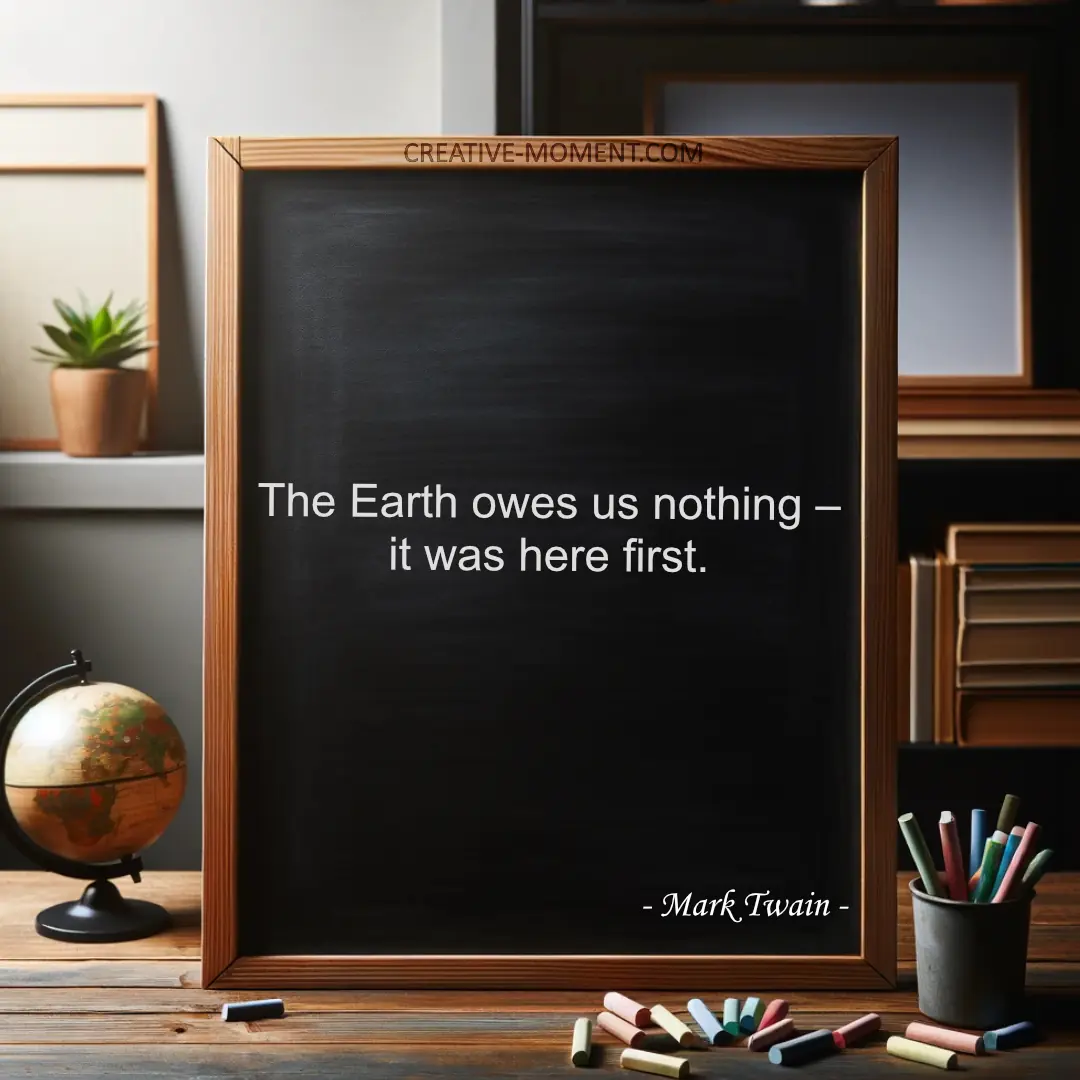Saying: The Earth owes us nothing – it was here first
Info
- Title: The Earth owes us nothing – it was here first
- Type: Sayings
- Category: Nature and Environment
- Print: Download as PDF for printing
With his pointed statement “The Earth owes us nothing – it was here first.”, Mark Twain makes a clear stance visible. The phrasing adjusts human expectations and sets a sober standard. It invites us to reconsider our role in relation to the Earth.
Origin and Usage of the Saying
The original saying by Mark Twain is: "Don’t go around saying the world owes you a living. The world owes you nothing. It was here first." It is documented in established quotation collections and has been cited for decades in print publications as well as in thematic contexts on entitlement thinking and social responsibility.
Meaning and Interpretation of the Saying
The sentence makes it clear that the Earth is not bound to our expectations. It existed before us and follows its own order. This perspective encourages humility and a realistic self-assessment.
By rejecting any sense of entitlement, Mark Twain directs attention to personal responsibility. Those who do not claim supposed rights over the world strengthen self-efficacy and accountability.
Philosophically, the saying shifts the focus from claims to duties. Humanity appears as part of a larger whole, not as the measure of all things. This fosters respect for natural limits.
In practical terms, the statement inspires sustainable action: resources are used more consciously because no “entitlement” is assumed. This creates a realistic framework for sustainability and long-term thinking.
As a timeless corrective, the saying works against complacency. Accepting that the world owes us nothing leads to clearer decisions and builds resilience in processes of change.
Similar images



 Back to overview
Back to overview

